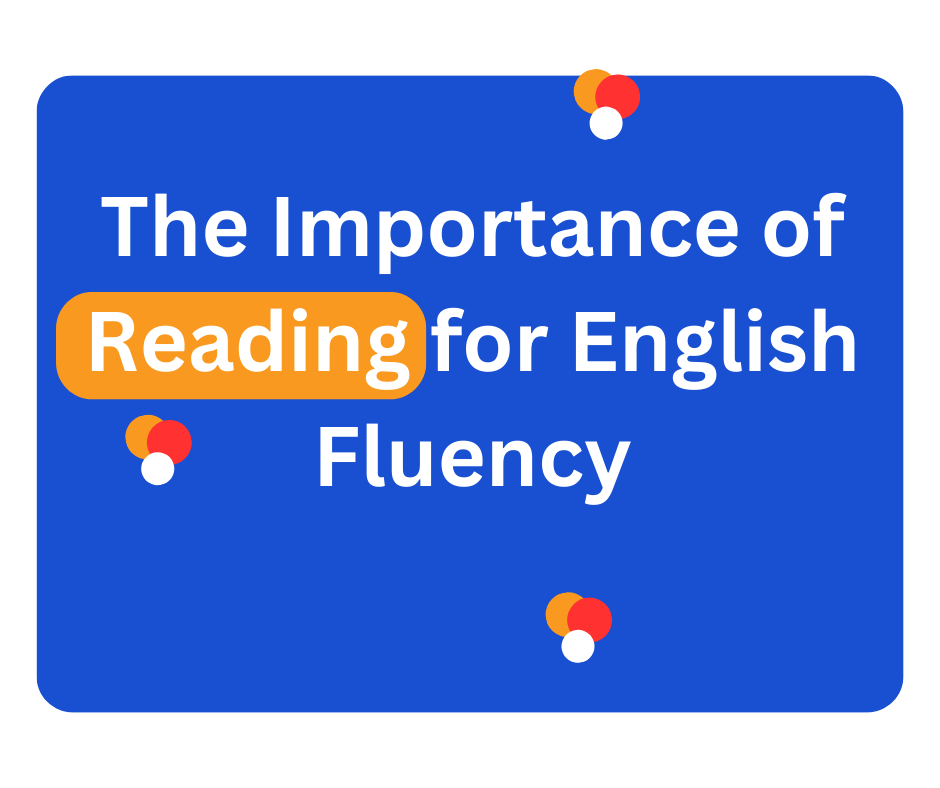Reading is a powerful tool for language learning and plays a significant role in developing English fluency. Whether you’re a beginner or an advanced learner, incorporating reading into your language practice can have numerous benefits. In this blog post, we will explore the importance of reading for English fluency and how it can enhance your language skills.
- Building Vocabulary: Reading exposes you to a wide range of vocabulary in context. By encountering new words and phrases in various contexts, you expand your vocabulary and develop a more nuanced understanding of their usage. The more words you know, the better equipped you are to express yourself effectively in spoken English.
- Improving Comprehension Skills: Reading helps improve your comprehension skills, which are crucial for understanding spoken English. As you read, you encounter different sentence structures, idiomatic expressions, and grammatical patterns. This exposure enhances your ability to understand complex texts and aids in understanding spoken English in real-life situations.
- Enhancing Grammar and Sentence Structure: When you read extensively, you become familiar with proper grammar and sentence structures. You subconsciously absorb the correct usage of tenses, word order, and punctuation. This acquired knowledge reflects in your spoken English, enabling you to construct grammatically accurate sentences and communicate more effectively.
- Learning Collocations and Phrasal Verbs: Collocations and phrasal verbs are an integral part of the English language. Through reading, you come across these word combinations and gain a deeper understanding of their meanings and usage. This knowledge enhances your fluency and helps you use these expressions naturally in spoken English.
- Exposing Yourself to Different Styles and Genres: Reading exposes you to various writing styles, genres, and topics. Whether it’s fiction, non-fiction, news articles, or blogs, each genre offers a unique linguistic experience. By reading widely, you broaden your understanding of different writing styles, which in turn enriches your spoken English and enhances your communication skills.
- Developing Critical Thinking Skills: Reading encourages critical thinking and analytical skills. As you engage with texts, you are exposed to different perspectives, ideas, and arguments. This fosters the ability to think critically and form opinions, enabling you to express your thoughts and engage in meaningful discussions in English.
- Improving Fluency and Language Flow: Regular reading helps improve your overall fluency and language flow. The more you expose yourself to written English, the more familiar and comfortable you become with the language. This familiarity translates into smoother and more fluent spoken English as your brain becomes attuned to the patterns and rhythms of the language.
- Cultivating Cultural Understanding: Reading allows you to delve into different cultures, traditions, and perspectives. Literature and other written materials provide insights into the social and cultural aspects of English-speaking countries. This cultural understanding enhances your ability to communicate effectively and respectfully in diverse cultural settings.
Conclusion:
Reading is a valuable tool for developing English fluency. It helps expand vocabulary, improve comprehension skills, enhance grammar and sentence structure, learn collocations and phrasal verbs, expose oneself to different styles and genres, develop critical thinking skills, improve fluency and language flow, and cultivate cultural understanding. Incorporate reading into your language practice to unlock its full potential and accelerate your journey toward English fluency. So grab a book, immerse yourself in the world of words, and watch your English skills soar to new heights. Happy reading and happy learning!
